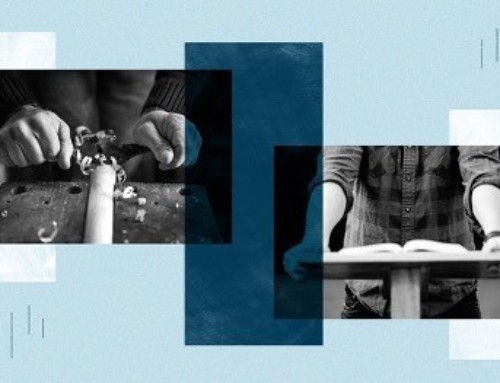He Is Not One to Leave Us Hurting
The difficult work of embodied faith
BECA BRUDER
Then will the eyes of the blind be opened
and the ears of the deaf unstopped.
Then will the lame leap like a deer,
and the mute tongue shout for joy.
Water will gush forth in the wilderness
and streams in the desert.
The burning sand will become a pool,
the thirsty ground bubbling springs.
In the haunts where jackals once lay,
grass and reeds and papyrus will grow.
— Isaiah 35:5-7
It’s not easy to both inhabit our bodies and trust in the work of the Spirit. Illness, disability, and abuse are part of our reality and urgently grip our focus. Our minds are often filled with dizzying, self-obsessed thoughts, and our own woes monopolize our attention.
We want relief: a place for our parched souls to find water, where the limitations of our bodies can be overcome. We cry out for rescue and vengeance for the injustices our bodies have absorbed. We hope to see Christ in the bubbling springs but get distracted by the burning sand underneath our feet.
The prophet Isaiah revealed God’s promise in the language of healing. Yes, the Messiah will bring spiritual peace, but he will not overlook the wounded bodies of the redeemed. He will usher us into Zion with singing and lead us to the bright dawning of our hope. He is not one to leave us hurting.
Though we know the promise, we’re prone to wander, following our own paths of disbelief. Christ’s redemption often takes a different shape than we imagined it would, and we, like John the Baptist, wonder if we are to wait for another king. Did we entrust our hope to the wrong person? Is he not who we thought he was? We long for our rescue to come and for it to tangibly change our reality. Jesus’ reply to John’s question is on those terms: “The blind receive sight, the lame walk, those who have leprosy are cleansed, the deaf hear, the dead are raised, and the good news is proclaimed to the poor” (Matt. 11:4–5).
He is the salvation Isaiah prophesied. The healing that comes from his hand testifies to his divinity. Israel waited for the coming of a Savior who would heal both spiritual and physical brokenness. That hope became reality in a baby’s birth. His miracles during his time on earth were the first signs of that long-expected healing. And yet, we still wait for him, torn and fragile.
Instead of letting our debilitation discourage devotion, we lift expectant eyes to the one who can save. This season, we will echo the hopes of ancient Israel as we sing, “O come, O come, Emmanuel.” There will be a time when the entirety of this prophecy will be our reality. We will walk in the holy way with the redeemed. Everlasting joy and gladness will be upon our heads and all sorrow will flee.
Until then, we remember the baby born in Bethlehem who came to open the eyes of the blind and proclaim good news to the poor and who will return to gather and save God’s people. He will bring divine retribution for the wrongs and healing for our hurts, and we will be made whole. “Say to those with fearful hearts, ‘Be strong, do not fear; your God will come’ ” (Isa. 35:4).
Reflection Questions:
1. As we reflect on the prophetic words of Isaiah and the healing ministry of Jesus, how does this bring comfort and hope to our own struggles with physical limitations, illnesses, or injustices?
2. How can we encourage one another to remain steadfast and strong in faith, despite the trials and challenges we face?
Beca Bruder is the managing editor of Comment Magazine.
© 2023 Christianity Today – a 501(c)(3) nonprofit organization. “Christianity Today” and “CT” are the registered trademarks of Christianity Today International. All rights reserved






